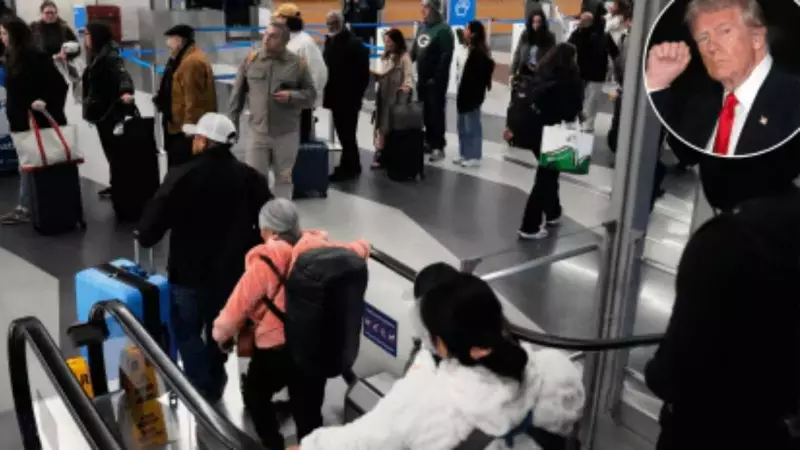
American airlines faced unprecedented disruption on Tuesday as more than 1200 flights were canceled across the United States. The massive travel chaos comes as the partial government shutdown continues to cripple federal aviation operations.
Government Shutdown Paralyzes Aviation System
The ongoing political stalemate in Washington has severely impacted the Federal Aviation Administration (FAA), which is operating with limited staff. Over 1200 flights were canceled on Tuesday alone, with hundreds more experiencing significant delays. This represents one of the worst single-day travel disruptions in recent US aviation history.
Major carriers including Southwest Airlines, American Airlines, and Delta Air Lines were forced to ground aircraft and cancel routes. The situation has left thousands of passengers stranded at airports nationwide, with many travelers reporting complete uncertainty about when they might reach their destinations.
FAA Staffing Crisis Deepens Travel Woes
The core of the problem lies in the FAA's critical staffing shortage. Air traffic controllers and aviation safety inspectors are among the federal employees who have been working without pay since the shutdown began. Many are calling in sick or refusing to work due to financial pressures, creating dangerous gaps in the aviation safety net.
Transportation security officers at airports are also affected, leading to longer security lines and additional passenger frustration. The combination of these factors has created a perfect storm for air travel disruption that shows no signs of improving until the government funding impasse is resolved.
Economic Impact and Traveler Frustration Mounts
The flight cancellations are having ripple effects throughout the travel industry. Hotels near airports are reporting increased bookings from stranded passengers, while rental car companies are experiencing sudden shortages as travelers seek alternative transportation methods.
Business travelers are particularly affected, with many missing important meetings and corporate events. Tourism industry experts warn that the continued uncertainty could have long-term consequences for both domestic and international travel to the United States.
Passengers are advised to check with their airlines directly before heading to airports and to allow extra time for security screening. Most major carriers are offering fee waivers for rebooking, though availability on alternative flights remains extremely limited.
As the government shutdown enters its third week, aviation industry leaders are expressing growing concern about the system's ability to maintain safety standards while operating with reduced federal oversight. The situation represents one of the most significant tests for US aviation infrastructure in decades.





